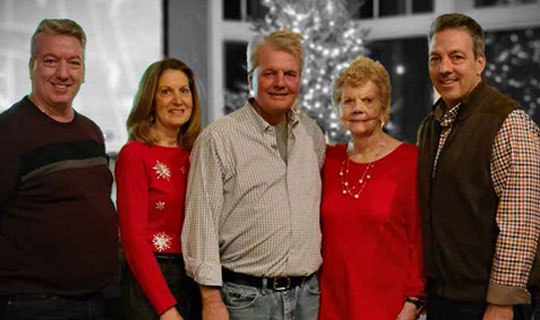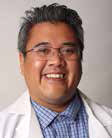“I got this miracle shot, and I hope it helps other people like it helped me. I’m blessed, lucky and grateful.”

A Woman Benefits From a New Clot-busting Drug Being Studied at Robert Wood Johnson University Hospital.
Joyce Lockwood still can’t believe she had a stroke. In fact, she didn’t feel she was having one as it was happening the night of July 27, 2021. “One minute I’m home watching a movie and the next I’m waking up in the hospital,” says the 81-year-old East Brunswick retiree.
Joyce had called a nearby son in Livingston to ask a question as she watched TV late that evening. When his wife ended the call after saying hello, she turned to her husband. “You’d better call your mother back,” she told him. “I don’t like the way she sounded.” Joyce hadn’t realized she was slurring words as a clot formed in an artery leading to her brain, blocking blood flow and triggering an acute, ischemic stroke.
Joyce recalls first responders pounding on her door and window, but she didn’t answer. She doesn’t remember what happened next until becoming aware she was at Robert Wood Johnson University Hospital (RWJUH) with a nurse holding a syringe. “I asked the nurse, ‘What’s that for?’” Joyce says. “She said, ‘We’re trying to reverse it.’”
Improving Outcomes
The RWJUH Comprehensive Stroke Center team had established Joyce was having a stroke and quickly injected an innovative, powerful medication that can open blocked arteries, preserve brain function and often save lives. Called tenecteplase, or TNK, the drug is the subject of a study in progress at the hospital.

When given shortly after a stroke’s onset, TNK activates an enzyme that cuts through protein. “Once that happens, the drug starts breaking up the clot,” says RWJUH vascular neurologist Raymond Mirasol, MD, Assistant Professor, Division of Stroke and Neurocritical Care, Department of Neurology, Rutgers Robert Wood Johnson Medical School and RWJUH.
TNK is similar to an older clot-busting medication called recombinant tissue plasminogen activator, or rtPA. That drug had been a breakthrough to doctors who were once virtually powerless against stroke.
“Before the 1990s, the prognosis for even surviving acute strokes in large blood vessels was not good,” says Dr. Mirasol. “The stroke world was relegated pretty much to monitoring patients’ progress. Many patients died or became permanently disabled.” Treatment with rtPA meant strokes caught quickly enough could be treated, giving patients who met criteria for the drug’s use much greater odds of a favorable outcome.
TNK offers additional advantages over rtPA’s potentially lifesaving benefits. The body breaks TNK down more slowly, so an injection does not need to be followed by an hour-long infusion to make sure patients get enough, as is done with rtPA. Being able to administer just a single injection makes TNK— already commercially available as a treatment for heart attacks—much easier to use in acute stroke patients like Joyce. TNK may also have fewer side effects than rtPA.
“Given the very strong scientific evidence for using TNK over rtPA, we made TNK the standard of care at RWJUH in June 2021 and are doing our own ongoing analysis of its efficacy and safety,” Dr. Mirasol says. “My experience is that in many patients, TNK seems to be dissolving clots more effectively than rtPA.”
Short Stay
It didn’t take Joyce long to conclude something good had happened after she received her injection. “The nurses were celebrating,” she says. “They put their arms around me and wished me luck. They were very happy.”
She spent the next day in the hospital getting tests and learning about the stroke she’d survived. With tests done and Joyce able to walk on her own, she was discharged the following day. “For a then-80-year-old woman to have a stroke and be in the hospital only one full day is like a miracle to me,” Joyce says. “I had an angel on my shoulder.”
She left with a prescription for a cholesterol-lowering statin, but her primary care doctor soon said she could cut it back to manage side effects. The only drugs Joyce takes now are a blood pressure medication she’s been on since her 60s and low-dose aspirin. “I feel great,” she says. Results like Joyce’s will become part of RWJUH’s ongoing study. “What we’re doing could benefit patients in other parts of the country as hospitals come to us for insights that will inform not only other academic medical centers but community medical centers as well,” Dr. Mirasol says.
“I got this miracle shot, and I hope it helps other people like it helped me,” Joyce says. “I’m blessed, lucky and grateful.”
To learn more about neurologic and stroke treatments at Robert Wood Johnson University Hospital, visit rwjbh.org/rwjuhstroke.